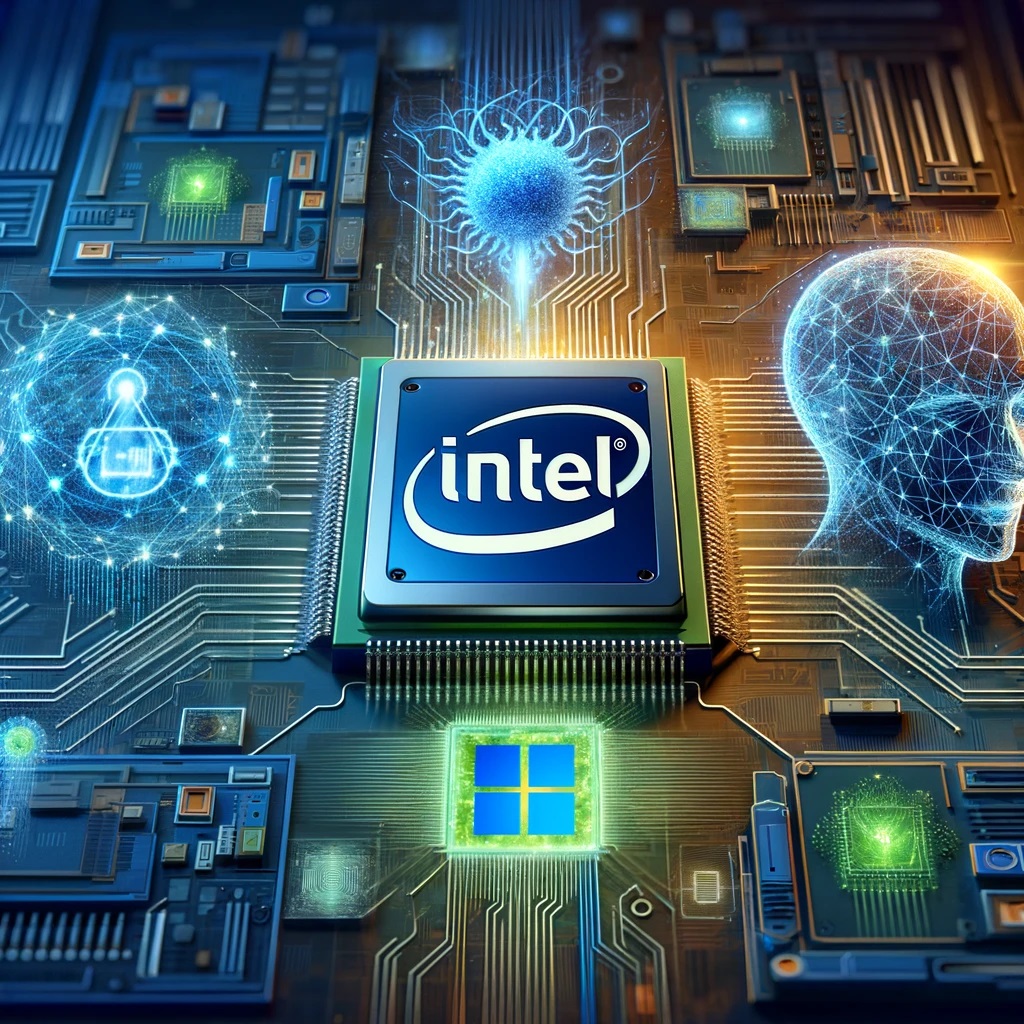Intel's Strategic Pivot: Foundry Business And The AI Revolution

In a significant shift from its longstanding tradition, Intel, the American semiconductor titan, has embarked on a new journey — manufacturing high-end semiconductors for Microsoft, signaling its foray into the foundry business. This move is not just a business strategy but a response to the burgeoning demand for advanced semiconductors, primarily driven by the rise of generative AI technologies.
The Genesis of Intel's Foundry Business Model
Historically, Intel has prided itself on being a leader in both designing and manufacturing its semiconductor chips. However, under the leadership of CEO Pat Gelsinger, the company has taken a bold step towards transforming itself into a foundry business. This transition is aimed at "rebuilding western manufacturing at scale" and positioning Intel to compete head-to-head with foundry giants like TSMC and Samsung. Gelsinger's vision underscores a commitment to reshaping the semiconductor landscape, with an ambitious goal of significantly increasing the production of semiconductors in the US and Europe over the next decade.
Geopolitical and Economic Motivations
The shift is propelled by more than just business ambitions; geopolitical concerns play a crucial role. The US government, wary of the semiconductor manufacturing concentration in Asia, especially Taiwan, views Intel's move as a strategic step towards bringing leading-edge manufacturing back to American soil. This localization effort is deemed essential for national security and economic stability, given the critical role semiconductors play in everything from consumer electronics to defense systems.
Intel's Strategic Objectives and Challenges
Intel's objective is clear: to ensure that 50% of the world’s semiconductors are built in the US and Europe within a decade, a significant increase from the current 20%. However, achieving this goal is not without its challenges. Intel must convince potential manufacturing customers of its commitment to treating externally designed chips with the same priority and quality as its own designs, a crucial step in winning trust in the competitive foundry market.
Impact on the AI Technology Landscape
The demand for advanced semiconductors is skyrocketing, thanks in large part to AI. From enhancing data analytics to powering autonomous systems, AI technologies require a massive amount of computing power, provided by the very chips Intel aims to manufacture. Gelsinger's ambition to produce "every AI chip in the industry" could dramatically accelerate the pace of AI innovation, offering more powerful and efficient solutions across various sectors.
Collaborations and Partnerships
Intel's strategy involves forming key partnerships, as evidenced by its collaboration with Microsoft to produce an AI chip using Intel’s advanced 18A node. Additionally, a surprising partnership with UK chip designer Arm signals Intel's willingness to bridge competitive divides in pursuit of its foundry goals. These collaborations are pivotal in expanding Intel's manufacturing capabilities and technological reach.
Economic and Policy Support
The Federal Chips Act, promising $52.7bn for US semiconductor research, development, and manufacturing, is a cornerstone of government support for Intel's ambitions. This policy backing is expected to bolster Intel's foundry business, providing a much-needed boost to the semiconductor industry in the US and, by extension, to the national economy.
Effects on the Business Landscape with AI Integration
The surge in demand for AI chips heralds transformative effects on businesses. Intel's entry into the foundry space could lead to the development of more tailored, efficient AI solutions, offering businesses a competitive edge. From healthcare diagnostics to financial analytics, the potential for innovation is vast, promising a new era of AI-driven business solutions.
Challenges Ahead
Despite the clear vision and strategic partnerships, Intel faces technical and logistical hurdles in scaling up its foundry services. Moreover, the competitive landscape is shifting, with Intel's new foundry model introducing a fresh dynamic among established players like TSMC and Samsung.
Conclusion
Intel's strategic pivot towards a foundry business model marks a significant moment in the semiconductor industry. With the backing of pivotal partnerships and governmental support, Intel is not just aiming to change the way it operates but is looking to redefine the global semiconductor manufacturing landscape. As this initiative unfolds, its success could have far-reaching implications, not just for Intel but for the entire tech industry, particularly in the realm of AI development. The journey ahead is fraught with challenges, but the potential rewards for technological advancement and economic security make it a venture worth watching.
Author: Gerardine Lucero
From Chip War To Cloud War: The Next Frontier In Global Tech Competition
The global chip war, characterized by intense competition among nations and corporations for supremacy in semiconductor ... Read more
The High Stakes Of Tech Regulation: Security Risks And Market Dynamics
The influence of tech giants in the global economy continues to grow, raising crucial questions about how to balance sec... Read more
The Tyranny Of Instagram Interiors: Why It's Time To Break Free From Algorithm-Driven Aesthetics
Instagram has become a dominant force in shaping interior design trends, offering a seemingly endless stream of inspirat... Read more
The Data Crunch In AI: Strategies For Sustainability
Exploring solutions to the imminent exhaustion of internet data for AI training.As the artificial intelligence (AI) indu... Read more
Google Abandons Four-Year Effort To Remove Cookies From Chrome Browser
After four years of dedicated effort, Google has decided to abandon its plan to remove third-party cookies from its Chro... Read more
LinkedIn Embraces AI And Gamification To Drive User Engagement And Revenue
In an effort to tackle slowing revenue growth and enhance user engagement, LinkedIn is turning to artificial intelligenc... Read more

